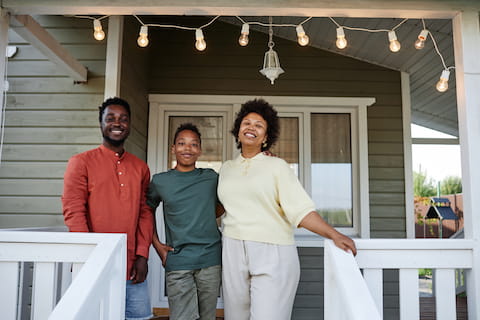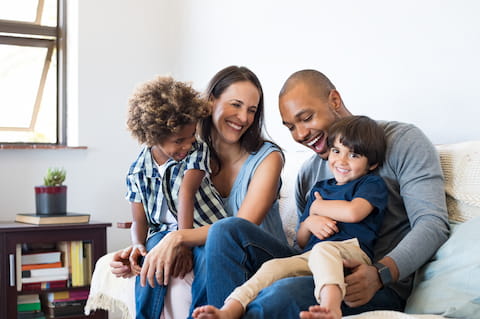What is TF-CBT?
Overview

Trauma-Focused Cognitive Behavioral Therapy (TF-CBT) is an extensively researched evidence-based mental health treatment for children and adolescents, ages 3-18, who are experiencing difficulty after a trauma exposure such as serious accidental injury, sexual abuse, or exposure to violence. Research has shown TF-CBT can be utilized with children and adolescents who have emotional and behavioral difficulties associated with single, multiple and complex trauma experiences.
TF-CBT is a components based, structured, short-term treatment model that effectively improves a range of trauma-related outcomes, typically in 8-25 sessions. Both the child or adolescent and their parent/caregiver are involved in the therapeutic process. TF-CBT integrates trauma-sensitive interventions, cognitive behavioral principles as well as aspects of attachment, developmental neurobiology, family, empowerment, and humanistic theoretical models.
Although TF-CBT is highly effective at improving youth posttraumatic stress disorder (PTSD) symptoms, a PTSD diagnosis is not required in order to receive this treatment. TF-CBT also effectively addresses many other trauma impacts, including affective concerns (such as depression and/or anxiety), cognitive and behavioral problems, and school problems. Additionally, throughout the course of TF-CBT, the participating caregiver’s personal distress about the child’s traumatic experience often decreases, while effective parenting skills and supportive interactions with the child increases.
For additional information on the model, please visit Trauma-Focused Cognitive Behavioral Therapy’s site or learn more about TF-CBT.
Components of the TF-CBT Model
TF-CBT utilizes the PRACTICE Acronym
Assessment: Obtain information on a child’s experience of traumatic events and trauma related symptoms.
Psychoeducation: Provide psychoeducation about trauma(s), reactions, reminders and treatment.
Parenting: Provide trauma-informed parenting skills (praise, selective attention, active listening, time out, etc.).
Relaxation: Provide individualized relaxation skills (e.g., focused breathing, mindfulness, etc.).
Affect Expression & Modulation: Provide ways to help the child enhance their ability to identify & express feelings.
Cognitive Coping: Introduce the cognitive triangle and optimistic thinking in general terms with the child and their caregiver.
Trauma Narration: Develop the child’s trauma narrative (TN) in calibrated increments with thoughts, feelings, sensations, helpful and worst moments. Cognitively process maladaptive thoughts and end TN with positive lessons about self, others, parents/caregivers, and the future.
In-vivo: Plan in-vivo desensitization for generalized avoidance as needed.
Conjoint Session: Conjoint trauma-focused youth-parent sessions: youth and parent trauma education, share the trauma narrative when clinically appropriate.
Enhancing Future Safety: Address personal safety skills and assertive communication; increase the child’s awareness of problem-solving skills and/or social skills.
Who can benefit from TF-CBT?

Trauma-Focused Cognitive Behavioral Therapy (TF-CBT) treatment has been shown to help children, and adolescents ages 3-18 and their caregivers overcome trauma-related difficulties. It is designed to reduce negative emotional and behavioral responses following trauma exposure.
Children and youth who have experienced a traumatic event including child sexual abuse, physical abuse, domestic violence, traumatic loss, mass disasters, multiple traumas, and other traumatic events. These children and youth who have lived through a traumatic experience should also experience current trauma symptoms after the event. Symptoms can include emotional, behavioral, cognitive, physical and/or interpersonal difficulties directly related to the traumatic experience.
Even after trauma exposure many children do not develop ongoing trauma symptoms, so children who would best benefit from TF-CBT have both experienced a traumatic event and are also having ongoing behavioral and emotional trauma symptoms. The TF-CBT model was developed for traumatized children and is not a “one-size-fits-all” approach. TF-CBT can be tailored to meet the individual needs of children.
What does a TF-CBT Learning Collaborative Training look like?

A TF-CBT Learning Collaborative training through the Children’s Trauma Initiative consists of:
- A 13-month commitment
-
Two learning sessions approximately 3 months apart.
- Learning Session 1 is 3 days
- Learning Session 2 is 2 days
- Participation in monthly consultation calls for 12 months
- Fidelity Monitoring through our REDCap data collection system
- Implement and complete the model with 3-5 children and families during the Learning Collaborative
-
Teams consist of at least 1 clinician and 1 clinical supervisor
- Clinical Supervisors currently provide clinical supervision to master’s level therapists
- Clinicians are serving children, youth, and their families who are part of the Community Mental Health Services Programs (CMHSP) system
- Clinician(s) and supervisors must be masters level clinicians
Training Qualifications
TF-CBT Learning Collaboratives are provided on a regular basis throughout the year to Community Mental Health Services Programs (CMHSPs) and their provider agencies. To qualify for a Learning Collaborative in our evidence-based TF-CBT program, you must be a licensed clinician employed by either a CMHSP or provider agency.
Please speak with your agency supervisor if you are interested in participating in an upcoming Learning Collaborative.
